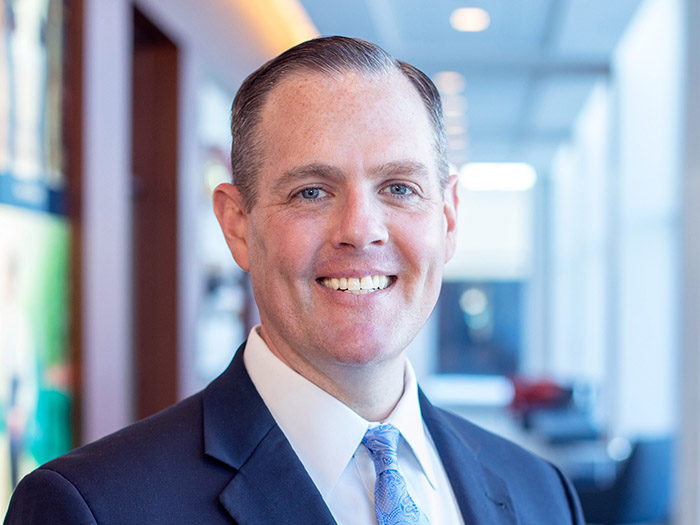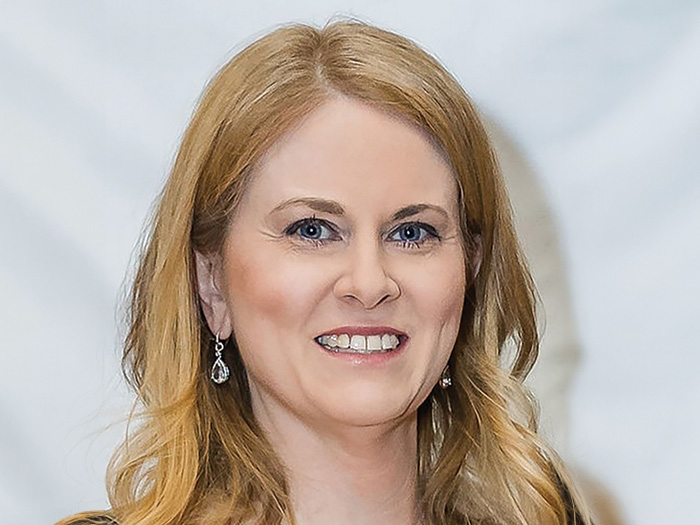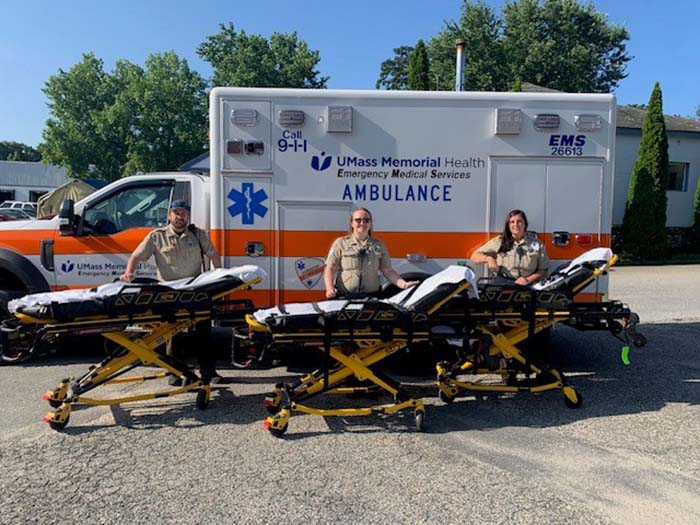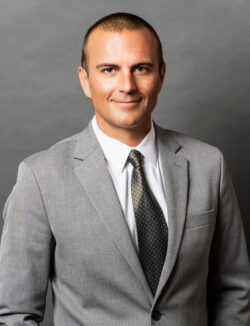Gallagher Bassett’s Mike Hessling on Cultivating a Culture of Service Excellence

In a recent conversation, Michelle Kerr, workers’ compensation editor and conference chair at Risk & Insurance, spoke with Mike Hessling, CEO, North America at Gallagher Bassett, to discuss the company’s unique approach to service excellence, the role of AI in its operations, and the future of the claims profession.
What follows is a transcript of that conversation, edited for length and clarity.
Risk & Insurance: You and I have spoken about service excellence in the past, and we know any organization can make those claims. So how does Gallagher Bassett back those words up with actions?
Mike Hessling: At Gallagher Bassett, our commitment to service excellence starts with our culture, which is rooted in the Gallagher Way. Written in 1984, these shared values guide how we work with one another across the organization. Every new team member has these tenets instilled within them from day one. To complement the Gallagher Way, we recently introduced our Standards of Excellence. These standards outline what we believe, who we are as a team, and how we operate, specifically focusing on delivering excellence every day to our clients, injured workers, and the claimants we serve.
Beyond setting expectations, we emphasize and highlight where excellence is alive and well within our organization. We strongly believe in the power of storytelling, that is, sharing the stories of team members who have gone above and beyond to make a tremendous impact on those they serve. Our executive team engages in gratitude campaigns, writing handwritten letters to team members to recognize their great work and provide them with Gallagher Bassett merchandise to promote the brand they embody through their exceptional performance. Furthermore, our annual recognition program for claims professionals brings finalists to our home office to spend the day with and present to the executive team.
Through this experience, we consistently find that these individuals bring their personal values to work, which shines through in their service to others. Excitingly, at RIMS this year, we will have several past participants from our resolution manager recognition program attend as Gallagher Bassett service ambassadors. They will share their impactful claim stories with clients, prospects, and partners in the brokerage and carrier community. While innovation is important, we are ultimately in a service business, and there’s nothing more powerful than letting our service delivery team share their stories with others in the marketplace.
R&I: Can you give me an example of someone at Gallagher Bassett who really embodies these core values?
MH: It’s tough to pick just one, but Olga Benitez, a member of our workers’ compensation claims team for over 18 years, is a prime example. Her story is incredible and demonstrates how in our business, being personal leads to better outcomes. Olga’s journey with Gallagher Bassett began when a family member had a workers’ compensation claim managed by our company. The positive experience they had inspired her to join our team.
Throughout her time at Gallagher Bassett, Olga has brought her passion and experience to life, helping injured workers overcome their injuries and find the care they need. In some cases, she has even helped individuals completely change their lives by adopting healthier lifestyles, all due to her support, positive energy, and focus on total health. Olga’s positive attitude is infectious, permeating every interaction she has with team members and shining through on the phone when speaking with injured workers. Her presence makes me want to be a better leader at Gallagher Bassett. If I had a family member who was injured, I would want Olga to serve them. She truly epitomizes what service excellence looks like within our organization.
R&I: There’s no single cut-and-dried recipe for creating a strong company culture. How do you proactively build your unique culture, starting from day one?
MH: At Gallagher Bassett, our recruitment process is focused on selecting individuals, not just hiring for open roles. We look for candidates with a strong work ethic, passion, and a commitment to serving others. We constantly anchor back to our organization’s purpose, which is to help people and companies prevent, manage, and overcome the impact of risk. We instill in our team members the attitude that our work is personal. It’s not just about handling files or serving accounts; it’s also about taking care of injured workers and claimants and helping risk managers.
We emphasize to our team that the individuals we serve are often in a vulnerable state and facing fear, concern, and confusion. This presents a tremendous opportunity for us to step in and help them navigate the claims experience, which is often a once-in-a-lifetime event for them. When we do it right, we have stories such as Olga, whose family member had such a positive experience that she joined our organization.
Another injured worker we had taken care of showed up at one of our offices with his resume, wanting to join our team. These stories reinforce to our team that what we do matters and that it’s a privilege to serve our clients and injured workers. When we find people who believe in this mission and hold it close to their hearts, showing up every day to live it out, there’s no stopping our organization.
R&I: What are the key areas of focus for Gallagher Bassett in the coming years, and how do they align with the company’s mission?
MH: We are heavily focused on several key areas that align with our mission. First and foremost, we are committed to recruiting individuals who not only possess the necessary technical skill sets but also share our organizational values. While we can teach the claims trade, it is crucial that our team members contribute to the growth and perpetuation of our exceptional company culture.
Second, we are dedicated to setting our team members up for success by ensuring they have an outstanding experience at Gallagher Bassett. We have launched a continuous improvement portal and hold regular meetings to identify and eliminate any roadblocks that may hinder our team members’ success.
Additionally, we are passionate about measurement. While we track traditional industry metrics such as closure ratio, average incurred, and litigation rates, we also prioritize measuring the satisfaction levels of injured workers, clients, and our own team members. These experience and satisfaction measures provide valuable insights into areas that require our focus and attention.
Last, innovation is a key focus for us. We continuously explore ways to deploy technology and process enhancements throughout the organization to improve the experiences of claimants, clients, and team members. This includes leveraging advancements such as generative AI and decision support systems to enhance the claims process.
R&I: How is AI factoring into the projects you’re working on?
MH: We think about technology through the lens of how it impacts the experience of our different stakeholders: our clients, injured workers, claimants, and team members. For our clients, who are increasingly sophisticated and data-driven, we deploy AI to mine claims data and rapidly identify claims with specific attributes. This helps them better manage their claims portfolio and focus their limited resources on claims where they can have a differential impact.
In terms of the injured worker and claimant experience, we use technology such as our mobile application to provide claim information and guide them to the right medical providers. While we may use AI for more self-service in the future, our intention is to more quickly and accurately answer basic questions, not to replace our resolution managers.
Finally, for our team members, we use AI in decision support tools to determine resource deployment, select a defense firm, and identify doctors with the best outcomes. We’re also exploring generative AI to reduce the administrative burden on our claims professionals by summarizing medical reports, analyzing litigation demands, and identifying time-sensitive claim information.
However, the goal is to remove the processing and administrative load from our team, not to replace the core function of our claims professionals, which is to interact with people in need.
R&I: How would you like to see the insurance industry harness technology to improve the claims experience in the next five years?
MH: Historically, the insurance industry has focused on deploying technology for innovation, differentiation, and efficiency. While these aspects remain important, I believe we should shift our focus to utilizing technology to enhance the overall experience.
As an industry, if we are committed to assisting injured workers or third-party claimants, we must strive to remove friction from the process. By leveraging technology, we can make the role of claims professionals easier, allowing them to spend more time making decisions and engaging and collaborating with others and less time performing administrative tasks and processing and synthesizing information.
Ideally, I would love to see the industry move beyond using technology solely for efficiency and instead focus on creating a more intimate experience between claims professionals and the individuals they serve.
By employing technology to remove barriers that currently hinder this level of connection, we can significantly improve the claims experience. Achieving this goal within the next five years would be a fantastic accomplishment for the industry.
R&I: What are the greatest potential risks from the way we are now using AI and other new technologies in the insurance industry?
MH: I believe there are a couple of significant risks we face. First, there’s a real risk of overpromising and under-delivering. Over the past decade, technologies such as telemedicine in workers’ compensation and predictive modeling across claims management have generated a lot of excitement.
However, while both have a place and can make a meaningful impact, neither has completely transformed or replaced the core processes of medical care or claims professionals’ decision-making. These technologies are supplements to the process, not replacements.
When organizations communicate their plans for generative AI in bold ways, it creates a level of expectation in the marketplace and among team members about how it will transform their work. However, our experience has shown that it takes significant time and effort to harness and operationalize technology and then build it into existing processes so that people can take advantage of it.
As an organization, we think carefully about how we develop, deploy, and demonstrate the impact of technology. The concern is whether there is too much overpromising right now and not enough focus on over-delivering.
A second risk is that generative AI immediately causes angst among people, especially because they think machines might take over their roles and responsibilities.
I can’t think of anything more detrimental than people believing we are somehow going to dehumanize claims. Claims are an incredibly sensitive and personal experience, especially in areas such as workers’ compensation or bodily injury claims in liability. The last message we want to send is that generative AI will take over the role of the claims professional.
Instead, we need to advocate that generative AI will supplement and support claims professionals, allowing them to be even more connected and engaged with injured workers and claimants. As an industry, we must ensure this message is clear. Talent recruitment is already a challenge we all face in the claims profession, and we don’t want to provide a perspective that machines will replace the critical claims professionals we rely on to deliver our service every day.
R&I: What are the key areas of growth and improvement that you’re focused on as an organization?
MH: Our primary focus is on achieving excellence in everything we do. While we’re not perfect, we’re continuously working towards perfecting our processes and services. Our top priority is to empower our team members to do what they’re passionate about — serving others.
By clearing obstacles and providing the necessary support, we aim to enable our team to consistently deliver exceptional service. Another crucial area of focus is talent acquisition and development. As our organization grows, we need to be selective in bringing in experienced professionals while also investing in growing our own talent.
Our goal is to cultivate a distinctive culture and environment within our claims team, where our professionals possess unique skills and qualities that set them apart. This then sets a precedent for our recruitment efforts and a new standard for what it means to work here.
Lastly, we believe that consistently demonstrating excellence in every interaction every day will set us apart in the market. While innovation is important, mastering the basics and leveraging technology to enable consistent, high-quality service delivery is key. By focusing on these three areas—team member experience, distinctive talent, and consistently excellent service—we anticipate significant growth opportunities for Gallagher Bassett and the claims industry as a whole.
R&I: What’s your outlook for the future — for Gallagher Bassett and for the claims profession as a whole?
MH: After 11 years with the organization, I am more passionate and excited about where we are and where we’re going than ever before. I truly believe the best is yet to come for Gallagher Bassett. Despite our successes and the many positive developments within the organization, I see even greater potential ahead.
We are bringing on board tremendous talent and exploring exciting opportunities associated with technology and its deployment. The reactions to the stories we share internally affirm that it’s an incredible time to be at Gallagher Bassett. Moreover, I believe it’s an incredible time to be in the claims profession as a whole, with the industry poised for significant advancements and growth. &











